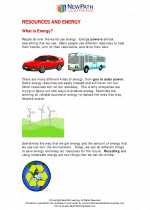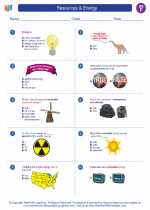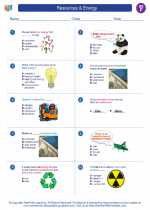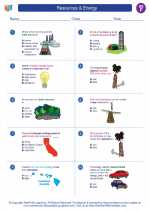Geography
Geography is the study of the Earth's landscapes, environments, and the relationships between people and their surroundings. It encompasses the physical features of the Earth as well as the human activities that take place on its surface.
Physical Geography
Physical geography focuses on the natural features and processes of the Earth, such as landforms, climate, vegetation, and ecosystems. It also examines the impact of natural phenomena like earthquakes, volcanoes, and erosion on the Earth's surface.
Human Geography
Human geography explores the interactions between humans and their environment, including population distribution, urbanization, cultural landscapes, and economic activities. It also examines how human activities affect the Earth's surface and natural resources.
Key Concepts in Geography
- Location: Describes where a place is located on the Earth's surface.
- Place: Refers to the physical and human characteristics of a location, such as its climate, landforms, and cultural attributes.
- Region: An area with common characteristics, such as language, climate, or economic activities.
- Movement: Focuses on the transportation of people, goods, and ideas across the Earth's surface.
- Human-Environment Interaction: Examines how humans adapt to and modify their environment, as well as the impact of natural disasters on human societies.
Geographic Tools and Technologies
Geographers use various tools and technologies to study the Earth, including maps, Geographic Information Systems (GIS), remote sensing, and Global Positioning Systems (GPS). These tools help geographers analyze spatial patterns, create visual representations of data, and understand the complex relationships between human and physical geography.
Studying Geography
To study geography effectively, it's important to develop map-reading skills, understand the principles of physical and human geography, and analyze spatial relationships between different regions. Additionally, learning about current global issues, such as climate change, migration patterns, and urbanization, is essential for understanding the interconnected nature of the world.
Study Guide
Here are some key concepts and topics to focus on when studying geography:
- Physical features of the Earth, including landforms, climate, and natural disasters.
- Population distribution and migration patterns.
- Cultural landscapes and the impact of human activities on the environment.
- Map-reading skills and understanding geographic coordinates.
- Current global issues and their geographical implications.
By mastering these concepts and topics, you'll gain a comprehensive understanding of geography and its significance in understanding the world around us.
[Geography] Related Worksheets and Study Guides:
.◂Social Studies Worksheets and Study Guides Sixth Grade. Resources & Energy

 Worksheet/Answer key
Worksheet/Answer key
 Worksheet/Answer key
Worksheet/Answer key
 Worksheet/Answer key
Worksheet/Answer key
